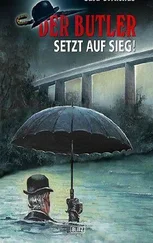Elizabeth Butler - An Autobiography
Здесь есть возможность читать онлайн «Elizabeth Butler - An Autobiography» — ознакомительный отрывок электронной книги совершенно бесплатно, а после прочтения отрывка купить полную версию. В некоторых случаях можно слушать аудио, скачать через торрент в формате fb2 и присутствует краткое содержание. ISBN: , Жанр: foreign_language, foreign_antique, foreign_prose, Биографии и Мемуары, на английском языке. Описание произведения, (предисловие) а так же отзывы посетителей доступны на портале библиотеки ЛибКат.
- Название:An Autobiography
- Автор:
- Жанр:
- Год:неизвестен
- ISBN:http://www.gutenberg.org/ebooks/41638
- Рейтинг книги:5 / 5. Голосов: 1
-
Избранное:Добавить в избранное
- Отзывы:
-
Ваша оценка:
- 100
- 1
- 2
- 3
- 4
- 5
An Autobiography: краткое содержание, описание и аннотация
Предлагаем к чтению аннотацию, описание, краткое содержание или предисловие (зависит от того, что написал сам автор книги «An Autobiography»). Если вы не нашли необходимую информацию о книге — напишите в комментариях, мы постараемся отыскать её.
An Autobiography — читать онлайн ознакомительный отрывок
Ниже представлен текст книги, разбитый по страницам. Система сохранения места последней прочитанной страницы, позволяет с удобством читать онлайн бесплатно книгу «An Autobiography», без необходимости каждый раз заново искать на чём Вы остановились. Поставьте закладку, и сможете в любой момент перейти на страницу, на которой закончили чтение.
Интервал:
Закладка:
CHAPTER III
MORE TRAVEL
“ALAS! for railway travellers one approach to a place is like another. Fancy arriving at Cologne through ragged factory outskirts and being deposited under a glazed shed from which nothing but the railway objects can be seen! We made a dash to the cathedral, I on the way remarking the badly-dressed Düppel heroes (!) with their cook’s caps and tight trousers; and oh dear! the officers are of a very different mould here from what they are in Belgium. Big-whiskered fellows with waists enough to make the Belgians faint. But I am trifling. We went into the cathedral by a most glorious old portal covered with rich Gothic mouldings. Happy am I to be able to say I have seen Cologne Cathedral. Now, hurrah for the Rhine! that river I have so longed, for years, to see.”
We don’t seem to have cared much for Bonn, though I intensely enjoyed watching the swift river from the hotel garden and the Seven Mountains beyond. The people, too, amused and interested me very much, and the long porcelain pipe dangling from every male mouth gave me much matter for sketching.
My Diary on board the Germania : “Koenigswinter at the foot of the Dragenfels began that series of exquisite towns at the foot of ruined castles of which we have had more than a sufficient feast – that is, to be able to do them all the justice which their excessive beauty calls loudly for. We rounded the Dragenfels and saw it ‘frowning’ more Byronically than on the Bonn side, and altogether more impressive. And soon began the vines in all their sweet abundance on the smiling hill slopes. Romantic Rolandsec expanded on our right as we neared it, and there stood the fragment of the ruined castle peering down, as its builder is said to have done, upon the Convent amidst the trees on its island below. And then how fine looked the Seven Mountains as we looked back upon them, closing in the river as though it were a lake, and away we sped from them and left them growing mistier, and passed russet roofs and white-walled houses with black beams across, and passed lovely Unkel, picturesque to the core, bordering the water, and containing a most delicious old church. Opposite rose curious hills, wild and round, half vine-clad, half bare, and so on to Apollinarisberg on our right, with its new four-pinnacled church on the hill, above Remagen and its old church below. The last sight of the Dragenfels was a very happy one, in misty sunlight, as it finally disappeared behind the near hills. On, on we went, and passed the dark Erpeler Lei and the round, blasted and dismal ruin of Okenfels; and Ling, with a cloud-capped mountain frowning over it. As we glided by the fine restored château of Argenfels and the village of Hönningen the sky was red with the reflection of the sunset which we could not see, and was reflected in the swirling river. We did our Rhine pretty conscientiously by going first aft, then forward, and then to starboard, and then to port, and glories were always before us, look which way we would. So the Rhine has not been too much cried up, say what you will, Messrs. Blasé and Bore. The views were constantly interrupted by the heads of the lack-lustre people on board, who, just like the visitors at the R.A., hide the beauties they can’t appreciate from those who long to see them. But it soon began to grow dark.
“As we glided by Neuwied and stopped to take and discharge passengers a band was playing the ‘Düppel March,’ so called because the Prussians played it before Düppel. They are so blatantly proud of having beaten the Danes and getting Schleswig-Holstein. Fireworks were spluttering, and, altogether, a great deal of festivity was going on. It was quite black on the afterdeck by this time, minus lanterns. To go below to the stuffy, lighted cabin was not to be thought of, so we walked up and down, sometimes coming in contact with our fellow-man, or, rather, woman, for the men carried lights at the fore ( i. e. , at the ends of their cigars). At last, by the number of lights ahead, we knew we were approaching Coblenz. We went to the “Giant” Hotel, close to the landing. It was most tantalising to know that Ehrenbreitstein was towering opposite, invisible, and that such masses of picturesqueness must be all around. Papa and I had supper in the Speise-saal , and then I gladly sought my couch, in my sweet room which looked on the front, after a very enjoyable day.
“Most glorious of glorious days! The theory held so drearily by Messrs. Blasé and Bore about the mist and rain of the Rhine is knocked on the head. We were off to Bingen, to my regret, for it was hard to leave such a place as Coblenz, although greater beauties awaited us further up, perhaps, than we had yet seen. But I must begin with the morning and record the glorious sight before us as we looked out of our windows. Strong Ehrenbreitstein against the pearly, hot, morning sky, the furrowed rock laid bare in many places, and precipitous, sun-tinted and shadow-stained; the bright little town just opposite, the hill behind thickly clothed in rich vines athwart which the sun shone deliciously. The green of the river, too, was beautifully soft. After breakfast we took that charming invention, an open carriage, and went up to the Chartreuse, the proper thing to do, as this hill overlooks one of the views of the world. We went first through part of the town, by the large and rather ugly King’s Palace, passing much picturesqueness. The women have very pleasing headdresses about here of various patterns. Of course, the place is full of soldiers and everything seems fortified. On our ascent we passed great forts of immense strength, hard nuts for the French to crack, if they ever have the wickedness ( sic ) to put their pet notion of the Rhine being France’s boundary into execution. What a view we had all the way up; to our left, the winding Rhine disappearing in the distance into the gorge, its beautiful valley smiling below, and the vine-clad hills rising on either side, with their exquisite surfaces. Purple shadows, and golden vines, and walnut trees, that contrast which so often has enchanted my eyes on the Genoese Riviera, the Italian lakes, and my own dear Lake Leman, gladdened them once more. And then the really clear sky (no factory chimneys here) and those intense white clouds casting shadows on the hills of lovely purple. We went across the wide plateau on the top, a magnificent exercise ground for the soldiers, health itself, and then we beheld, winding below us in its sweet valley and by two picturesque villages, the little Moselle, by no means ‘blue,’ as the song says, but of a pinky brown and apparently very shallow. We were at a great height, and having got out of the carriage we stood on the very verge of a sheer precipice, at the far-down base of which wound the high road. Sweet little Moselle! I was so loth to leave that view behind. It really does seem such a shame to say so little of it. The air up there was full of the scent of wild thyme, and mountain flowers grew thick in that hot sun, and the short mountain grass was brown.
“We descended by another road and were taken right through the town to the old Moselle bridge which crosses that river near its confluence with the green Rhine. What turreted corners, what gable ends, what exquisite David Roberts ‘bits’ at every turn! The bridge and its old gate were a picture in themselves, and the view from the middle of the bridge of the walls, the old buildings, church towers and spires, and boats and rafts moored below, was the essence of the picturesque. Market women and pelotons of soldiers with glittering helmets and bayonets make excellent foreground groups. How unlike nearly-deserted Bruges is this busy, thronged city! Oxen are as much used about here as horses, and add much to the artist’s joy. But I must hurry on; there is all the glorious Rhine to Bingen to ascend. What a feast of beauty we have been partaking of since leaving Failure Bonn!
Читать дальшеИнтервал:
Закладка:
Похожие книги на «An Autobiography»
Представляем Вашему вниманию похожие книги на «An Autobiography» списком для выбора. Мы отобрали схожую по названию и смыслу литературу в надежде предоставить читателям больше вариантов отыскать новые, интересные, ещё непрочитанные произведения.
Обсуждение, отзывы о книге «An Autobiography» и просто собственные мнения читателей. Оставьте ваши комментарии, напишите, что Вы думаете о произведении, его смысле или главных героях. Укажите что конкретно понравилось, а что нет, и почему Вы так считаете.












